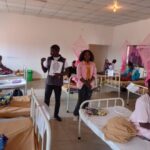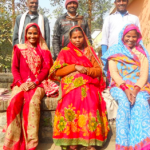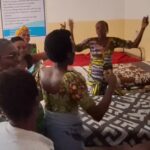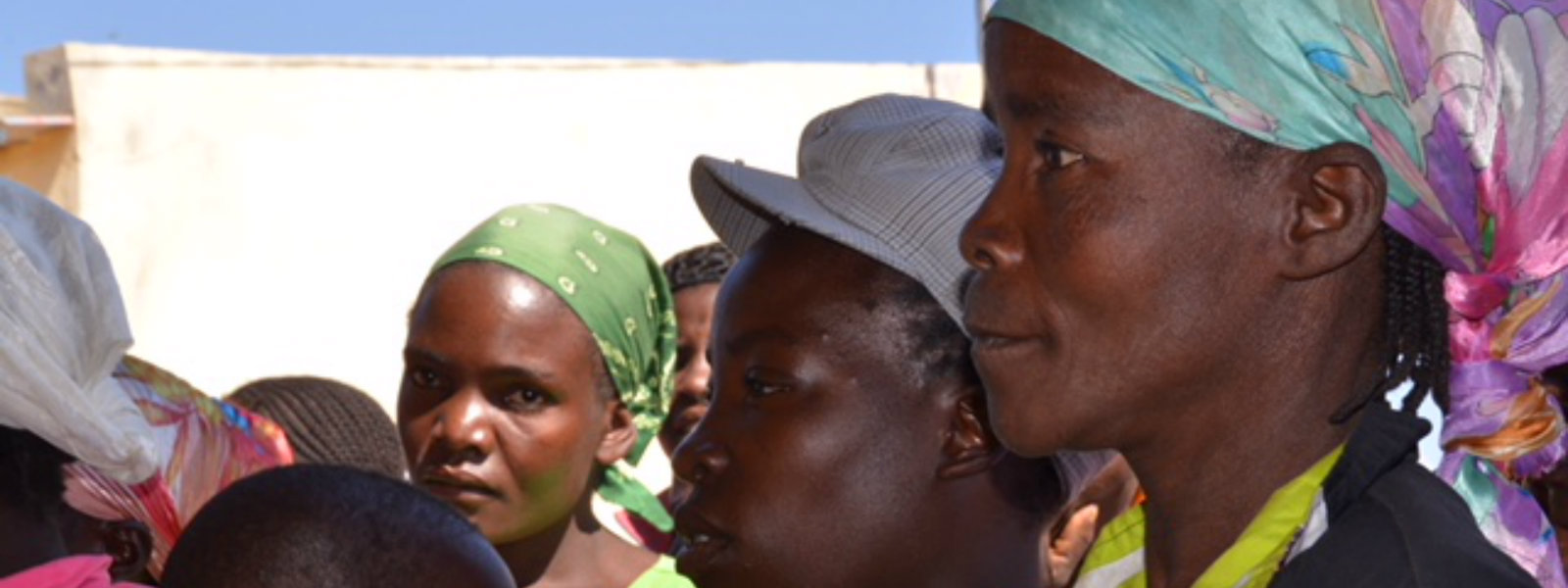Treatment Success Stories
A Holistic Treatment Team
 The Votoka (“Rise Up”) team in Angola continues to formalize its Ambassador program, which identifies, trains and supports ambassadors to share the message of awareness, prevention, and cure for obstetric fistula. The team has twenty-four registered volunteer ambassadors, plus three ambassadors who have become full-time team members. We can never know how many fistulas may be prevented thanks to the work of these ambassadors, but we do know how many patients they identify: in 2023 and 2024, the number of patients identified by ambassadors grew to approximately 30% of all patient referrals!
The Votoka (“Rise Up”) team in Angola continues to formalize its Ambassador program, which identifies, trains and supports ambassadors to share the message of awareness, prevention, and cure for obstetric fistula. The team has twenty-four registered volunteer ambassadors, plus three ambassadors who have become full-time team members. We can never know how many fistulas may be prevented thanks to the work of these ambassadors, but we do know how many patients they identify: in 2023 and 2024, the number of patients identified by ambassadors grew to approximately 30% of all patient referrals!
Team members follow up with phone calls to ambassadors on whether they have identified new patients and to inform them of upcoming treatment campaigns. Sometimes patients require a second or third operation, and follow-up calls to patients serve to keep their spirits up.
Campaigns offer holistic treatment including presentations for patients about obstetric fistula, hygiene, the repair operation, wound care and catheter care, importance of drinking water, discharge recommendations, and trauma care.
At campaigns in Kaluquembe, the nursing and trauma counseling team were warmly welcomed by Dr Priscila and staff. The Waiting House in Kaluquembe is a beautiful place for our ladies to stay and recover; it is a space of dignity and welcome and hope.
Three ladies from Kapilbastu, Nepal
 These 3 ladies from Kapilbastu, a poor district on the Indian border in Western Nepal, came for fistula surgery and all went home healed.
These 3 ladies from Kapilbastu, a poor district on the Indian border in Western Nepal, came for fistula surgery and all went home healed.
All fistula sufferers have sad stories and these women had experienced isolation, shame, and fear since developing fistula through prolonged, difficult labors without medical intervention. However, they were among the most fortunate to have husbands who stood by them. Though each woman had lost her baby, each also had surviving healthy children.
When they arrived, Gita, was depressed and withdrawn. She isolated herself by sitting alone and not talking. She was the first to have her surgery. In the days that followed, she slowly began to cheer up, even to laugh, as she slept in a dry bed with her catheter.
In Nepal, catheters are removed two weeks after surgery, first testing whether the bladder has healed. On the eve of her test, Gita was anxious. She said, “If I am not well tomorrow please give me medicine so that I will die.” Happily, her bladder had healed and Gita went home smiling. In the photo, Gita is the precious sister in the blue sari, smiling from ear to ear!
All three of these sisters are now free to be the wives and mothers they are called to be and to live their lives among friends and family once again. Healed inside and out!
New Hope for Women in DR Congo
 In July 2024, World Relief board members and some of their US staff visited a number of sites in DR Congo. One of those sites was our partner hospital, which does fistula repair surgeries for women who are victims of sexual gender based violence.
In July 2024, World Relief board members and some of their US staff visited a number of sites in DR Congo. One of those sites was our partner hospital, which does fistula repair surgeries for women who are victims of sexual gender based violence.
The team visited women in the hospital where they were spending 21 days recovering. The women were delighted and grateful for the support of Hope for Our Sisters in partnership with World Relief. To show their gratitude, they sang and danced for the board members!
Rumbi, DRC Country Director for World Relief, shared these words: “Their hearts are stronger as well as their bodies. We just want to say thank you so much to Hope for Our Sisters for the support that you are giving [to] bring hope to these women who suffered violence through the conflict that is happening in Congo.”

